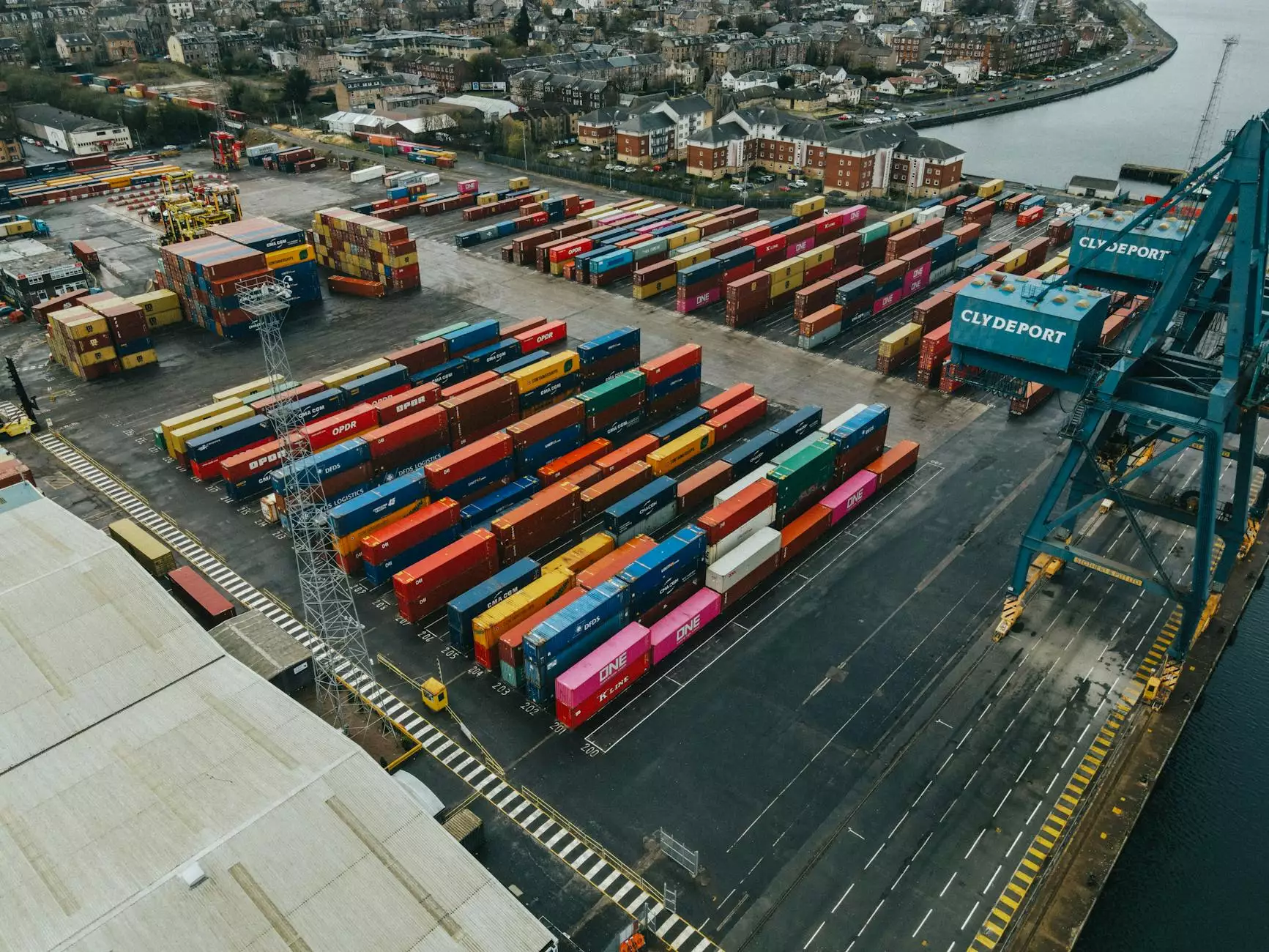Understanding and Optimizing Your Freight Shipping Quotes

In today's competitive environment, receiving a precise quote freight shipping is essential for businesses that rely heavily on logistics. With the increasing demand for efficient and economical shipping solutions, understanding the nuances of freight shipping quotes will provide your business with a substantial edge. In this article, we will delve into what freight shipping is, how to obtain an accurate quote, and why working with experts in shipping centers, business consulting, and vehicle shipping can prove invaluable.
The Importance of Freight Shipping for Businesses
Freight shipping is a crucial element of international trade and logistics. It involves transporting goods in bulk from one location to another, typically using various modes of transportation, including trucks, ships, and airplanes. The efficiency of your freight shipping process directly impacts your business's overall operational efficiency and profitability. Here are some reasons why understanding freight shipping is vital:
- Cost-effectiveness: Efficient freight shipping can lower overall shipping costs.
- Timely Delivery: Proper logistics ensure that products reach customers promptly.
- Inventory Management: Good shipping practices improve inventory turnover and reduce holding costs.
- Customer Satisfaction: Reliable shipping enhances the customer experience through timely deliveries.
What Impacts the Cost of Freight Shipping?
When you request a quote freight shipping, several factors will influence the cost. Understanding these components can help you make informed decisions and negotiate better rates:
1. Distance and Location
The distance between the shipping origin and destination is one of the primary factors that affect freight shipping costs. Long-distance shipments are typically more expensive due to fuel, labor, and longer transit times.
2. Type of Goods
The nature of the goods you are shipping plays a significant role. Perishable items, hazardous materials, or heavy goods may require special handling and, consequently, incur higher shipping rates.
3. Packaging and Weight
The size and weight of the shipment significantly impact shipping costs. Heavier and bulkier shipments generally cost more to transport. Proper packaging is essential to minimize costs; using lightweight materials can reduce the overall weight and freight class.
4. Shipping Mode
There are different modes of transportation, such as truckload (TL), less-than-truckload (LTL), air freight, and ocean freight. Each has its cost structure and is suitable for different kinds of shipments. Choosing the right mode affects both transit times and budgets.
5. Market Conditions
The logistics market can be volatile, with prices fluctuating based on demand, fuel costs, and seasonal trends. Understanding these conditions is essential for securing favorable quotes and contracts.
How to Obtain a Freight Shipping Quote
Getting an accurate quote freight shipping can seem daunting, but the process can be broken down into manageable steps:
Step 1: Gather Necessary Information
Before reaching out to a shipping provider, compile the following information:
- Dimensions and weight of the shipment.
- Pickup and delivery locations.
- Type of goods being shipped.
- Desired shipping timeframes.
Step 2: Research Shipping Companies
Look for reputable shipping companies that specialize in your industry. Building a relationship with multiple providers can lead to better rates and service levels. Companies like freightrate.com can offer tailored solutions based on experience and market knowledge.
Step 3: Request Quotes
Contact the chosen shipping companies to request quotes. Make sure to provide them with comprehensive information to ensure accuracy. Having multiple quotes can help in negotiating better rates.
Step 4: Analyze and Compare Quotes
Once you receive quotes, it’s essential to analyze them carefully. Look beyond just the price; consider factors like service guarantees, transit times, and additional fees or surcharges that might apply.
Step 5: Make Your Choice
Choose a shipping partner that not only meets your budget but also aligns with your quality and service expectations. Remember that the cheapest option may not always provide the best service.
Leveraging Shipping Centers for Efficient Logistics
Shipping centers play a pivotal role in the logistics ecosystem. These facilities help coordinate the movement of goods, distribution, and storage solutions that can lead to significant savings. Here’s how they can benefit your business:
- Centralized Logistics: Shipping centers provide a centralized hub for managing shipments, leading to optimized delivery routes and reduced lead times.
- Scalability: As your business grows, shipping centers can adapt to increased logistics demands without the need for heavy investment in infrastructure.
- Expertise: Shipping centers often employ logistics professionals who understand market trends and can aid in negotiating favorable terms with carriers.
Don’t Underestimate Business Consulting and Freight Insights
The freight shipping landscape is complex, making it beneficial to seek business consulting services specializing in logistics. A consultant can provide insights that help your firm navigate shipping challenges effectively. Here are some advantages of business consulting in this sector:
- Cost Analysis: Consultants can analyze your shipping expenses and identify potential savings.
- Best Practices: They offer expert guidance on industry best practices that can streamline your operations.
- Technology Integration: Consultants can help integrate shipping software solutions that enhance tracking, facilitate communication, and improve efficiency.
Vehicle Shipping: Specialized Freight Needs
Vehicle shipping is one of the more specialized forms of freight transport. Whether you’re moving personal vehicles, fleets, or machinery, understanding how to quote this service effectively is crucial. Here are some core aspects:
Types of Vehicle Shipping
- Open Transport: Ideal for standard vehicles and the most common, cost-effective method.
- Enclosed Transport: Offers protection for luxury, classic, or high-value vehicles, though at a higher cost.
- International Shipping: Involves additional considerations such as customs, duties, and regulations.
Factors Affecting Vehicle Shipping Quotes
When requesting a quote freight shipping specific to vehicles, several unique factors must be considered:
- Distance and route attributes (weather, traffic, etc.).
- Condition and type of vehicle (operational vs. inoperable).
- Desired pickup and delivery locations, especially for longer distances.
Conclusion: Mastering Freight Shipping for a Competitive Edge
In conclusion, mastering the art of obtaining an accurate quote freight shipping can significantly impact your business’s logistics and operational success. By understanding the factors that influence shipping costs, navigating the quoting process effectively, and leveraging expertise from shipping centers and business consultants, your business can thrive in a competitive marketplace.
Remember, the logistics landscape is continually evolving. Stay informed on industry trends, embrace technology, and prioritize building relationships with trusted shipping partners like freightrate.com to ensure your logistics strategy positions your business for growth and success.









